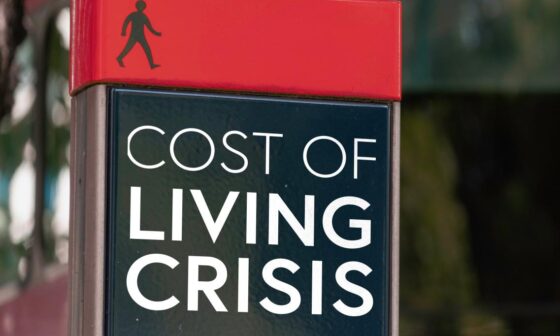Financial Mistakes Students Make in Their First Year And How to Avoid Them
 Why 80% of Scholarship Applications Fail And How to Avoid the Biggest Mistake
Why 80% of Scholarship Applications Fail And How to Avoid the Biggest Mistake
Starting college is exciting: new friends, new independence, new freedom—and for many students their first real taste of managing money. But with that freedom comes risk. Without a plan, it’s easy to fall into poor habits that have long-term consequences. Today we’ll map out the most common financial mistakes students make in their first year, and more importantly, how you can avoid them and set your financial path up for success.
Why Understanding Financial Mistakes Students Make in Their First Year Matters
Transitioning into campus life often involves expenses you haven’t faced before: meal plans, technology, social outings, books, travel, and perhaps student loans. Research shows college students frequently struggle with basic financial skills. One study on financial literacy among young adults points out that many lack the financial behavior, budgeting knowledge and credit-card awareness needed at this stage. (PMC)
Paying attention to common mistakes early can save you thousands of dollars, reduce stress and build a foundation for smart financial habits long after graduation.
7 Financial Mistakes Students Make in Their First Year
 What Happens If You Can’t Pay Back Student Loans? (Truth Sch0ols Never Teach)
What Happens If You Can’t Pay Back Student Loans? (Truth Sch0ols Never Teach)
Here are some of the top missteps students tend to make—and we’ll walk through how to steer clear of each one.
1. Not Having a Budget
One of the most frequent issues is failing to create or stick to a budget. According to a student finance guide, “Not having a monthly budget … is a very common money mistake.”
How to avoid it:
- At the start of the semester, list your income and all expected expenses (tuition, books, housing, food, transport).
- Set aside a small amount for “wants”, but prioritize needs.
- Review your actual spending every week for the first month.
2. Mixing “Wants” with “Needs”
It sounds simple, but many students confuse what they need (textbooks, tuition, rent) with what they want (concert trips, new gadgets). A university financial resource says that many students fail by not distinguishing between wants and needs. (newsroom.unl.edu)
How to avoid it:
- Before each purchase, ask: “Is this necessary for class/living, or is it optional?”
- If it’s optional, delay the purchase 24 hours—see if you still want it tomorrow.
3. Overspending and Reliance on Credit Cards
With a new sense of freedom, some students go ahead and use credit cards as if they’re free money. In fact, one analyst noted credit-card misuse is among the biggest money mistakes students make. (keystoneadvisors.com)
How to avoid it:
- If you open a credit card, treat it as if it’s your debit card: spend only what you know you can pay off immediately.
- Keep your credit-card balance well below 30% of its limit to protect your credit.
- Avoid multiple cards or high-interest store cards.
4. Borrowing More Than Necessary
Loans are essential for many students, but borrowing more than you need adds debt burden later. A common advice list states “Borrowing more than you need” as a top mistake in university. (My Money Coach)
How to avoid it:
- Estimate your real costs (tuition + living expenses) first. Borrow only what you need for the semester.
- When you receive your refund, consider putting a portion into savings or paying ahead for next term.
- Research scholarships and grants—free money is better than debt.
5. Ignoring Financial Aid, Scholarships or Grants
Skipping or delaying your aid application is a financial mistake. A college finance blog reveals many students fail by not applying for available aid. (Ascent Funding)
How to avoid it:
- As soon as you’ve confirmed enrollment, fill out required forms (FAFSA or local equivalent).
- Check your university’s scholarship page once a month.
- Set reminders for deadlines and gather recommendation letters early.
6. Not Building an Emergency Fund
Unexpected expenses happen—car repairs, medical bills, or travel home. Without a cushion, you may turn to costly debt. A budget-resource article says failing to save for emergencies is one of the pitfalls. (Save the Student)
How to avoid it:
- Aim to save even $20-$30 per month into a separate account.
- Label it “Semester Emergency Fund” and don’t touch it unless it’s a true emergency.
- Review it each month to see if you can incrementally increase it.
7. Poor Time-Money Trade-Offs (Side Hustles, Loans, Drops in Grades)
Balancing classes, jobs and finances is tricky. Some students take jobs that pay but interfere with their studies—and that can cost far more in the long run. One article noted choosing the wrong job or side hustle is a frequent mistake. (keystoneadvisors.com)
How to avoid it:
- Choose part-time jobs that align with your schedule and field of study (internships, tutoring) rather than just quick cash.
- Track hours versus earnings: if your GPA dips, the job may cost you more in lost scholarships or increased tuition rates.
- Make your studies your “job #1”; the income is secondary.
Table: Mistake vs Impact vs Smart Move
Here’s a quick comparison to reinforce the key points in a clear format.
| Mistake | Potential Impact | Smart Move |
|---|---|---|
| No budget | Overspending, entering debt | Create and review a monthly budget |
| Blurring wants vs needs | Buying non-essentials, limited resources | Delay discretionary purchases; classify spending |
| Credit-card misuse | High interest debt, damaged credit score | Spend only what you can pay off; keep utilization low |
| Over-borrowing loans | Big debt burden after graduation | Borrow only necessary amount; explore free aid |
| Ignoring scholarship/aid | Missed free money, higher borrowing | Apply early; monitor deadlines and options |
| No emergency savings | Reliance on debt for unexpected costs | Save small monthly amounts into an emergency fund |
| Job prioritized over studies | Lower grades, lost scholarships, increased costs | Prioritize study; choose flexible/aligning part-time job |
How to Build Smart Financial Habits Starting Now
Now that you know what mistakes to avoid, here’s how to build habits to protect yourself through your first year and beyond.
1. Start a Money Log for 30 Days
Track every dollar you spend for a month. At the end, categorize it into “needs”, “wants” and “savings”. This gives you real info on where your money goes.
2. Set One Financial Goal This Semester
Maybe it’s: “Save $200 into emergency fund” or “Pay off credit-card balance monthly”. Make the goal specific, measurable and realistic.
3. Use Free Campus Resources
Most universities offer budgeting workshops, financial literacy seminars or free access to tools. Leverage them—many students don’t. Studies show financial-literacy education improves behavior. (PMC)
4. Automate Savings if You Can
Even small amounts ($10/week) add up. Set up automatic transfers early so you pay your “future self” first.
5. Review Your Credit and Loans Each Semester
Keep track of how much you’ve borrowed, interest rates, and what repayment might look like. Knowledge reduces anxiety.
Final Thoughts
Your first year of college is an incredible opportunity to learn, grow, and build a future. But it’s also a critical time for your finances. If you ignore the risks, you could unknowingly set yourself back.
By understanding financial mistakes students make in their first year, and by taking practical steps to avoid them, you’re not just preventing debt or stress you’re laying the foundation for financial freedom and control.
Start today: make a budget, track your spending, save, apply early for aid, and pick a job wisely. Your future self will thank you.






